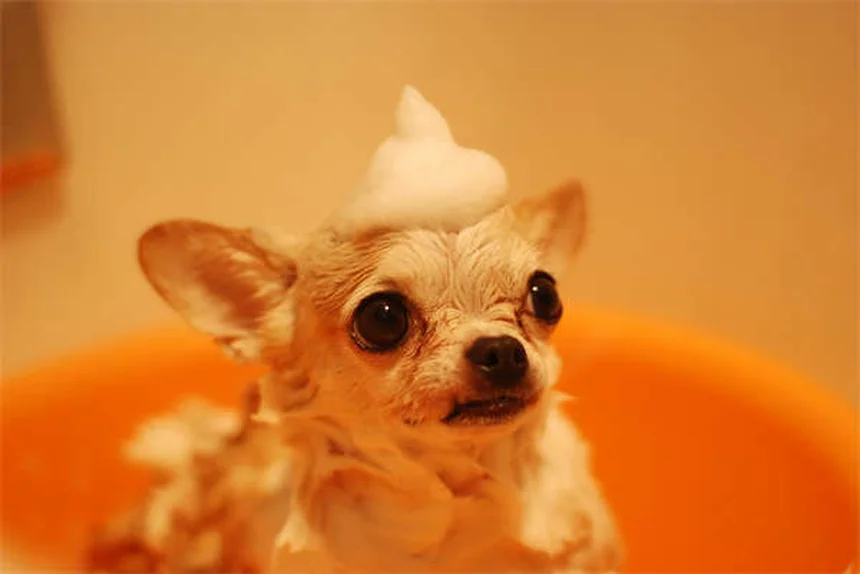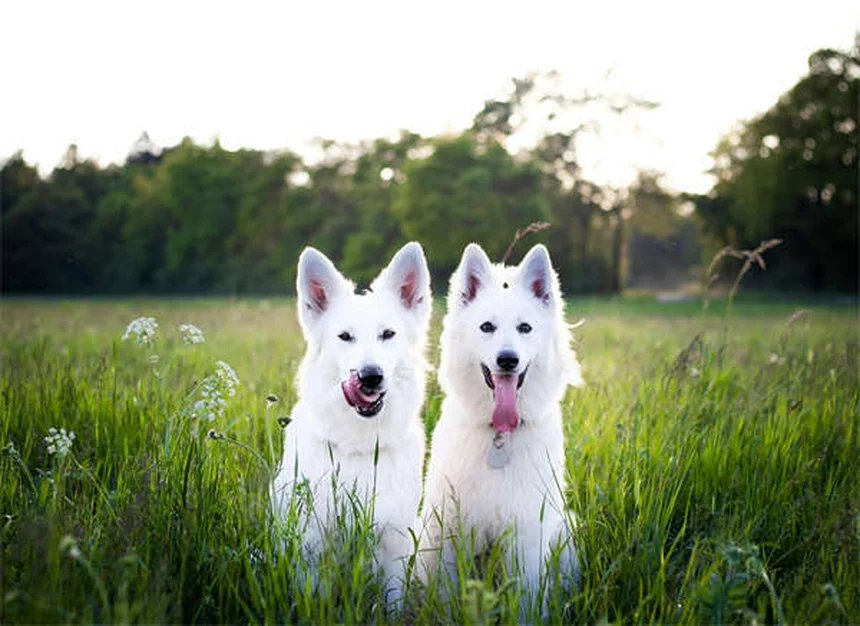Why isn't my rabbit eating? The answer is simple but serious: when your bunny stops eating, it's always an emergency. Whether it's true anorexia (loss of appetite) or pseudoanorexia (wanting to eat but can't), a rabbit that isn't eating is at risk for life-threatening complications. I've seen too many cases where owners waited too long - that's why I'm telling you straight: if your rabbit hasn't eaten in 12 hours, get to the vet immediately.Here's what you need to know right now: dental disease causes 80% of pseudoanorexia cases in rabbits. Those constantly growing teeth can create painful mouth ulcers and malocclusion, making eating impossible. But it's not just teeth - kidney disease, respiratory infections, or even stress from environmental changes can trigger appetite loss. The good news? With prompt treatment, most bunnies make full recoveries. Let me show you how to spot the warning signs and take action.
E.g. :Dog Nutrition 101: What Makes a Balanced Dog Food?
- 1、When Your Bunny Stops Eating: Understanding Rabbit Appetite Issues
- 2、The Hidden Dangers of Rabbit Digestive Stasis
- 3、FAQs
When Your Bunny Stops Eating: Understanding Rabbit Appetite Issues
What's Going On When Rabbits Won't Eat?
Let me tell you something - when your fluffy friend suddenly turns up their nose at dinner, it's not just being picky. We're talking about two main scenarios here: true anorexia (no appetite at all) and pseudoanorexia (they want to eat but can't). Imagine craving pizza but having a broken jaw - that's pseudoanorexia for bunnies!
The most common culprit? Dental problems. Those constantly growing teeth can cause serious trouble if not properly maintained. Other red flags include small or fewer poop pellets, weight loss, and that "I'm in pain" look - teeth grinding, hunched posture, or bad breath that could knock you over. Did you know rabbits with dental issues often develop chronic bad breath before showing other symptoms?
Why Won't My Rabbit Eat?
Let's break down the possible reasons:
| True Anorexia Causes | Pseudoanorexia Causes |
|---|---|
| Stomach ulcers | Dental diseases (gingivitis, malocclusion) |
| Kidney/liver issues | Esophagus problems |
| Respiratory infections | Jaw disorders |
| Toxic exposure | Mouth injuries |
Here's something many owners don't realize - that fancy new cage or recent diet change could be the problem. Rabbits are creatures of habit, and stress from environmental changes can trigger appetite loss faster than you can say "carrot cake."
 Photos provided by pixabay
Photos provided by pixabay
Getting to the Root of the Problem
When you bring your bunny to the vet, expect a thorough investigation. We're talking dental exams (those molars need special tools to check), possibly X-rays, and maybe even an ultrasound. The vet will play detective, asking about any recent changes in your rabbit's world.
Ever wonder why vets ask so many questions about your rabbit's home life? Because psychological factors can cause appetite issues too! That new pet in the house or rearranged furniture might be stressing out your bunny more than you'd think.
Getting Your Rabbit Eating Again
Treatment depends on the cause, but one thing's universal - we need to get nutrients into that bunny ASAP! Many rabbits arrive at the vet already dehydrated, needing fluids with electrolytes. Your vet might prescribe:
- Pain medication (if chewing hurts)
- Appetite stimulants
- Special recovery foods
For pseudoanorexia cases, we might need to syringe-feed critical care formula while addressing the underlying issue. And here's a pro tip - warming up the food can make it more appealing to finicky eaters!
Home Care for Your Recovering Rabbit
Once home, you'll need to become a bunny monitoring expert. Keep track of:
- Daily weight (a kitchen scale works great)
- Water consumption
- Poop production (yes, you'll become a poop inspector)
- Actual food eaten (not just scattered around the cage)
Remember that medication schedule! Missing doses can set back recovery. And keep that living space calm - no loud noises or sudden changes while your bunny heals.
 Photos provided by pixabay
Photos provided by pixabay
Getting to the Root of the Problem
While we can't prevent every possible cause, we can stack the odds in your bunny's favor:
- Unlimited hay - This keeps teeth worn down and gut moving
- Regular dental checks - At least annually for adults
- Stress-free environment - Predictable routines are a rabbit's best friend
- Proper diet - 80% hay, 15% veggies, 5% pellets
Here's a funny thought - rabbits are basically tiny, furry teenagers when it comes to eating habits. One day they love kale, the next they act like you're poisoning them! But unlike human teens, when rabbits stop eating, it's serious business.
When to Panic (And When Not To)
Not every skipped meal means disaster. Rabbits might fast for a few hours when stressed. But here's the rule: if your rabbit hasn't eaten in 12 hours, it's vet time. Their digestive systems need constant movement to stay healthy.
Ever notice how rabbits eat their special nighttime poop (cecotropes)? If they stop doing this, it's another red flag that something's wrong internally. Nature's weird, huh?
Creating the Perfect Bunny Dining Experience
Make mealtime appealing with these tips:
- Serve fresh herbs like cilantro or basil - the strong smells stimulate appetite
- Try hand-feeding favorite treats to encourage eating
- Use heavy ceramic bowls that won't tip (no one likes eating from a moving target!)
- Keep food areas clean - rabbits are surprisingly picky about hygiene
Think about it - would you want to eat from a dirty plate? Neither does your rabbit! A clean feeding area can make all the difference.
 Photos provided by pixabay
Photos provided by pixabay
Getting to the Root of the Problem
When your rabbit stops eating, it's scary. I've seen many owners blame themselves, but remember - rabbits hide illness well. By the time they show symptoms, they've often been sick for a while. The important thing is acting quickly when you notice changes.
Here's a comforting thought: with proper care, most appetite issues can be resolved. I've seen rabbits bounce back from serious conditions to become the same carrot-crazy furballs they were before. Your vigilance makes all the difference!
The Hidden Dangers of Rabbit Digestive Stasis
Why GI Stasis is More Than Just an Upset Tummy
You might think your bunny just has a minor stomachache, but gastrointestinal stasis is actually a life-threatening condition. When those tiny guts stop moving, gas builds up like balloons in a parade float - and it's just as uncomfortable! The pain makes rabbits stop eating, which makes the problem worse in a vicious cycle.
Here's something most owners don't realize - stress alone can trigger GI stasis. That thunderstorm last night? The neighbor's barking dog? Even your new perfume could be enough to upset your bunny's delicate digestive balance. Their systems are more sensitive than a gourmet chef's palate!
Spotting the Early Warning Signs
Before your rabbit completely stops eating, you might notice these subtle changes:
| Early Signs | Advanced Signs |
|---|---|
| Smaller poop pellets | No poop at all |
| Less enthusiastic about treats | Complete food refusal |
| Drinking less water | Lethargy and weakness |
| Quieter than usual | Loud tooth grinding (pain) |
Ever wonder why rabbits are so good at hiding illness? In the wild, showing weakness makes them targets. Your pampered pet still has those survival instincts, which means by the time you notice something's wrong, the problem may have been brewing for days.
The Critical First 24 Hours
When you suspect GI stasis, every hour counts. Here's what I recommend:
First, try offering your bunny's absolute favorite treat - the equivalent of emergency pizza for humans. If they turn down banana or raisins, sound the alarms! Next, gently massage their belly in clockwise motions to help move gas along. You can also try encouraging movement with short, supervised hops around a safe area.
But here's the hard truth - home remedies only go so far. If your rabbit hasn't eaten in 12 hours or hasn't pooped in 8, drop everything and get to the vet. I've seen too many cases where waiting "just a little longer" turned manageable problems into tragedies.
What Really Happens at the Vet
Your vet will likely take a multi-pronged approach:
They'll start with subcutaneous fluids to combat dehydration - imagine your bunny getting a much-needed spa treatment! Pain medication comes next because, let's face it, gas pains are the worst. Then they might use gut motility drugs to wake up that lazy digestive system, followed by critical care feeding through syringe if needed.
Did you know some vets use infant gas drops for rabbits? The simethicone in those little bottles can work wonders on bloated bunny bellies. It's one of those weird cross-species remedies that actually works!
Creating a Recovery-Friendly Environment
After vet treatment, your home care makes all the difference. Set up a quiet "recovery room" away from household hustle. Keep the area warm - sick rabbits struggle with temperature regulation. Place water bowls (not bottles) right near where they're resting because every extra step feels like a marathon to a recovering bunny.
Here's a trick I love - put their hay in easy reach but also sprinkle some around their resting area. The smell often stimulates appetite, and they might nibble without realizing it. It's like keeping crackers by your bed when you're sick - sometimes convenience wins!
The Psychological Aspect of Recovery
We often forget that illness affects rabbits emotionally too. Your normally social bunny might want extra cuddles or complete solitude - learn to read their cues. Sit quietly nearby reading aloud in calm tones. The sound of your voice can be comforting without being intrusive.
Ever notice how rabbits watch us for cues? If you're stressed about their health, they'll pick up on that energy. Fake it till you make it - act calm and confident even when you're worried sick. Your acting skills could speed their recovery!
Preventing Future Episodes
After surviving GI stasis, you'll want to bulletproof your bunny's routine. Here's my prevention prescription:
First, become a poop detective - check those pellets daily like they're tea leaves predicting the future. Second, establish a hydration station with multiple water sources. Third, create a stress-free zone where your rabbit can retreat during loud events. Finally, maintain a consistent schedule - rabbits thrive on routine more than military cadets!
Remember that old saying "an ounce of prevention"? For rabbits, it's more like "a bale of hay prevention." Keeping that digestive system moving with unlimited quality hay is the single best thing you can do. Think of it as high-fiber insurance for your bunny's health!
When to Call the Vet (Again)
Recovery isn't always smooth. Watch for these red flags that mean you need professional help:
If your rabbit stops eating again after initially improving, that's a major warning sign. Decreased poop production or oddly shaped pellets also warrant a call. Any signs of pain - tooth grinding, hunched posture, or reluctance to move - mean pick up the phone. And trust your gut - if something feels off, it probably is.
Here's a comforting thought though - most rabbits fully recover from GI stasis with proper care. I've seen bunnies bounce back from near-death experiences to live many happy, hoppy years. Your quick action and attentive care make all the difference between a scary story and a success story!
E.g. :Reduced Appetite in a Rabbit - PDSA
FAQs
Q: How long can a rabbit go without eating before it's dangerous?
A: Here's the hard truth - 12 hours is the absolute maximum a rabbit should go without eating. Unlike humans, rabbits' digestive systems need constant movement to stay healthy. When they stop eating, their gut slows down, leading to gastrointestinal stasis - a potentially fatal condition. I always tell my clients: "If your bunny skips two meals in a row, it's vet time." Watch for small or missing fecal pellets, which often appear before complete appetite loss. Remember, rabbits are prey animals that hide illness well, so by the time you notice symptoms, they may already be in trouble.
Q: What's the difference between anorexia and pseudoanorexia in rabbits?
A: Great question! True anorexia means your rabbit doesn't want to eat - maybe from illness, pain, or stress. Pseudoanorexia is when they want to eat but can't, usually due to dental problems or mouth pain. Here's how I explain it to my clients: imagine craving pizza but having a broken jaw - that's pseudoanorexia. The most telling sign? Your rabbit approaches food with interest but then backs away or drops food while chewing. Dental disease causes about 80% of pseudoanorexia cases, which is why regular tooth checks are so important.
Q: Can stress really cause a rabbit to stop eating?
A: Absolutely! Rabbits are extremely stress-sensitive creatures. I've seen cases where something as simple as rearranging furniture or introducing a new pet caused complete appetite loss. Their digestive systems are finely tuned, and stress hormones can literally shut down gut motility. Common stressors include loud noises, changes in routine, improper handling, or even loneliness. The solution? Keep their environment predictable, provide hiding spaces, and if you must make changes, do them gradually. Sometimes just covering part of their cage with a towel can help a stressed bunny feel secure enough to eat again.
Q: What should I feed my rabbit to encourage eating?
A: When your bunny's off their food, try these vet-approved tricks: warm up their favorite veggies to release more aroma, offer fresh herbs like cilantro or parsley (the strong smells stimulate appetite), or try hand-feeding their usual pellets. In emergencies, critical care formula (available from your vet) can be syringe-fed. But here's my pro tip: make sure they're still eating hay - that's the cornerstone of their diet. If they're refusing hay but taking treats, that's a red flag for dental issues. And remember - never force-feed without veterinary guidance, as this can cause aspiration pneumonia.
Q: How can I prevent appetite problems in my rabbit?
A: Prevention starts with the three H's: Hay, Health checks, and Happy environment. Unlimited timothy hay keeps teeth worn down and gut moving (aim for a pile as big as your bunny daily). Schedule annual vet checks including dental exams - rabbits need special tools to properly examine those back molars. Maintain a calm, consistent routine and avoid sudden changes. Did you know proper diet is 80% hay, 15% veggies, and only 5% pellets? Many appetite issues stem from improper diets. Lastly, monitor those poop pellets daily - they're the best early warning system you've got!
